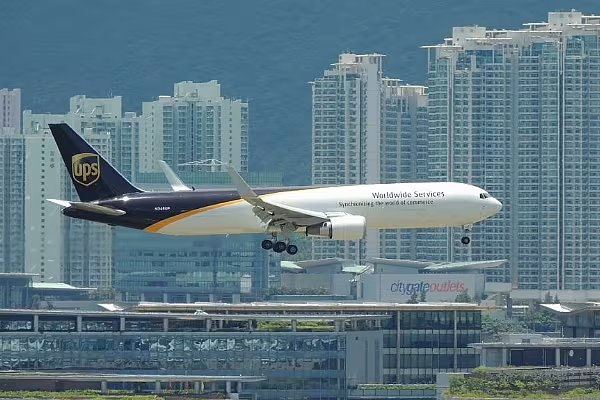An explosion of e-commerce demand is buoying the air freight business, boosting profit at some major airlines despite global trade tensions and underscoring robust consumer confidence.
Air freight demand is expected to rise 4 percent this year, the International Air Transport Association (IATA) said at its annual meeting in Sydney last week.
Top beneficiaries will be freight-heavy carriers like Hong Kong's Cathay Pacific Airways, Dubai's Emirates, Germany's Lufthansa and Korean Air Lines.
The growth in e-commerce is also a boon for parcel firms such as UPS and FedEx as well as second-hand jet traders and an army of pilots known as "freight dogs."
"The cargo environment is very strong," Carsten Spohr, chief executive of Germany's Lufthansa, the world's seventh largest cargo airline, told Reuters on the sidelines of the IATA talks.
Positive Environment
He added that planes were full on both the outbound and return legs of their trips thanks to the export-driven German economy on one end and goods sold online on the other. "Inbound and outbound, I'm looking at probably the best environment I have seen in years," he said.
Although trade tensions are rising, most notably between the U.S. and China and Europe, the industry is counting on e-commerce continuing to soar, with more people buying products online for quick delivery.
"Air freight may be impacted by the trade tensions, but it could be supported by GDP continuing to be relatively strong, and also by e-commerce," Mylene Scholnick, principal at consultancy ICF, told Reuters.
Consumer Spending
Cathay Pacific CEO Rupert Hogg said higher consumer spending is driving demand for high-end goods such as electronics.
"Definitely the retail map is changing and e-commerce is just growing and growing and with it the movement of small parcels. I don't see that changing at the moment. That is beginning to form a baseload," he said. Cathay's home airport, in Hong Kong, is the world's biggest cargo hub.
Business and consumer confidence are rising and tax cuts in the U.S. alongside loose monetary policy have spurred a cyclical revival in world trade, IATA economists say.
Airline leaders said growing protectionism could put that at risk, but only if it escalates into an all-out economic battle.
Although steel and aluminium are in the cross hairs of U.S. tariffs, those goods tend not to be shipped by air.
"The worry would be if this escalates and generally puts up trade barriers and makes it more difficult to facilitate. But at the moment, it's not affecting air cargo," said IATA chief economist Brian Pearce.
Lufthansa's Spohr agreed. "Looking at the current outlook in cargo, I am more concerned about a trade war as a European than I am concerned about a trade war as CEO of Lufthansa," he said.
Air cargo rose 9.7 percent in 2017, when companies turned to speedy air freight to refill inventories after unexpectedly good economic growth. Although that trend isn't expected to continue this year, e-commerce is softening the blow.
News by Reuters, edited by ESM. Click subscribe to sign up to ESM: European Supermarket Magazine.














